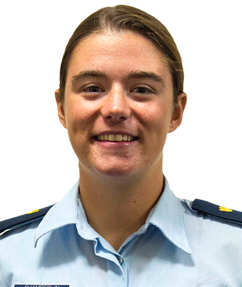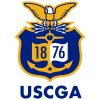 Hello! I wanted to take some time to talk about why I chose my major, Naval Architecture and Marine Engineering (NAME), and the experiences I have had with Nav Arch thus far. I will start off by saying that, unlike a lot of my shipmates, I came into the Academy knowing what I wanted to major in and never looked back.
Hello! I wanted to take some time to talk about why I chose my major, Naval Architecture and Marine Engineering (NAME), and the experiences I have had with Nav Arch thus far. I will start off by saying that, unlike a lot of my shipmates, I came into the Academy knowing what I wanted to major in and never looked back.
Growing up in Rhode Island and learning how to sail when I was 12, I knew I wanted to spend my life helping others while being on the water. With that, I found that Naval Architecture and Marine Engineering was a possible major, and that the Coast Guard Academy was one of the few colleges that offers it. Immediately, I looked at the Academy’s website and knew that the CGA was right for me. Ever since I received my appointment, I have been waiting to take major-specific courses. Now that I am in my 2/c year, I am finally enrolled in classes like Principles of Naval Architecture, which are relevant to what I want to do in the future. One unique experience that Nav Archs get at the Academy is to be a part of the Society of Naval Architects and Marine Engineers (SNAME). The New England chapter holds meetings at the Academy and cadets are able to attend. There is always a nice dinner followed by a talk by professional naval architects. It is refreshing to hear how what we are learning in the classroom applies to real life.
If you are a prospective cadet, I would recommend participating in Cadet for a Day. I attended the program when I was a senior in high school and I shadowed a 3/c (who is now an ensign!). She was a Naval Architecture and Marine Engineering major and was on the dinghy team. The experience sealed the deal for me to not only come to the Academy, but to major in NAME. I feel like my high school prepared me really well to be successful at the Academy. I think it is really important to take higher level math and science courses ‒ for example, I took AP Calculus AB, AP Physics I and II, and AP Environmental Science!
Being an engineer at the Academy is not the easiest life but late nights, lots of coffee, and studying with friends are all things to look forward to. Between homework and studying, I spend at least 20 hours a week doing work outside the classroom. I would say that is typical for most engineers. If I were to give advice to a prospective cadet it would be to study hard in high school, but also to have fun. The cadet experience is nonstop but I have learned to make the most of every moment. Ask a lot of questions, get to know your teachers well, and don’t just survive, but thrive!
If you have any questions, please feel free to email me at Amy.M.Chamberlin@uscga.edu.
